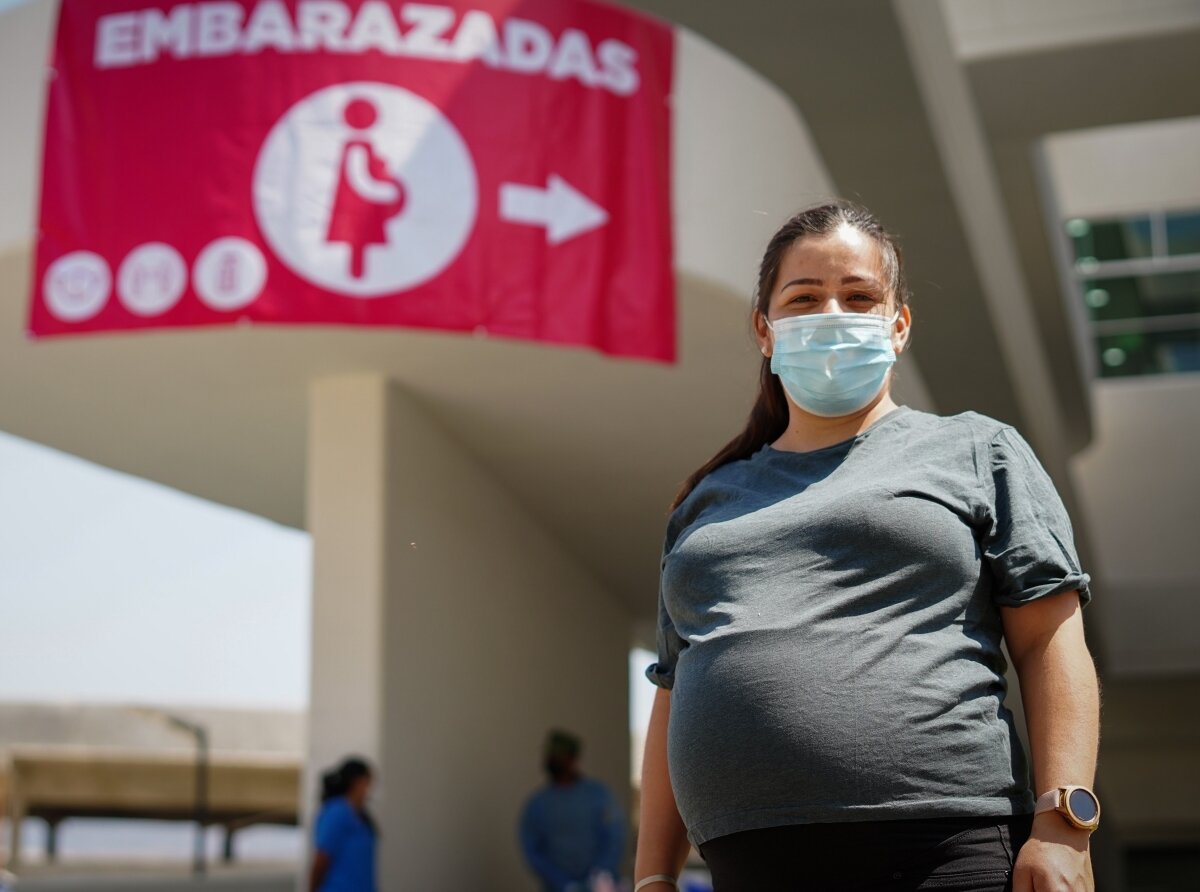In Mexico, 2 out of 10 pregnant women have obesity, and the accumulated weight gain in each pregnancy favors the increase of this disease.
Being overweight or obese increases the risks to the health of the pregnant woman and her baby, which is why the Jalisco Health Secretariat (SSJ) urges all pregnant women, or those who wish to become pregnant, to approach Pre-pregnancy services and prenatal care available in the state medical units to receive guidance and avoid complications.
"In women of childbearing age, obesity is the most common comorbidity in Mexico," said Carlos Bautista Nuño, the state coordinator of the Maternal Health Program of OPD Jalisco Health Services, during the webinar "Obesity and Pregnancy," carried out by the Agency as part of the activities of the prevention and promotion strategy.
“In Mexico, approximately 7 out of 10 women of reproductive age (20-49 years) are overweight or obese. The accumulated weight gain in each pregnancy is one of the most common causes of overweight and obesity at this stage,”, explained the specialist.
During pregnancy, obesity increases the risk of complications such as miscarriage, gestational diabetes, gestational hypertension, pre-eclampsia, labor abnormalities, and increased risk of cesarean sections.
A first action is to evaluate the nutritional status of the pregnant woman through the Body Mass Index (BMI.) Women who have a normal BMI should gain 12 to 15 kilos in pregnancy. However, "this weight gain has to be reduced to zero after pregnancy," said the doctor.
There is a belief that pregnant women should eat "for two;" this practice should be avoided during pregnancy. In the preanatal consultation the BMI of the woman and the recommendations for healthy eating are determined.
Bautista Nuño mentioned that a multiple pregnancy requires greater weight gain, therefore, specialists must guide the weight that a pregnant woman expecting twins or triplets should gain, based on her pre-pregnancy weight.
The state official responsible for Maternal and Perinatal Health of the SSJ, Claudio Plascencia Álvarez, recommended that all pregnant women or those who wish to become pregnant approach the nearest health center where pre-pregnancy care, control during pregnancy, follow-up of the puerperium stage, orientation in breastfeeding, and newborn care.
The health centers also offer the "Baby on the Way" card, a tool that accompanies women during the pregnancy-childbirth-puerperium stage.
Plascencia Álvarez recalled that in case of any doubt related to the health of the woman and her pregnancy, they can contact the number 800 MATERNA (800 6283762,) 24 hours a day, 365 days a year.
The specialist also invited women over 18 years of age and with 9 weeks of gestation to go to get vaccinated against COVID-19, to protect their health and their baby.
RECOMMENDATIONS FOR A HEALTHY PREGNANCY
At the first prenatal appointment calculate the body mass index.
Avoid eating "for two."
Consume protein, folic acid, calcium, and iron.
Ensure adequate energy consumption for adequate weight gain.
Promote the daily consumption of fruits and vegetables.
Avoid drinking coffee, soda, or eating candy.
Eliminate alcohol and tobacco use.
Practice physical activity for 20 to 30 minutes a day, unless advised otherwise by your doctor.
Reduce the consumption of cold cuts, salt, junk foods, chorizo, and dried meats, eliminate them in pregnant women with pre-eclampsia.

